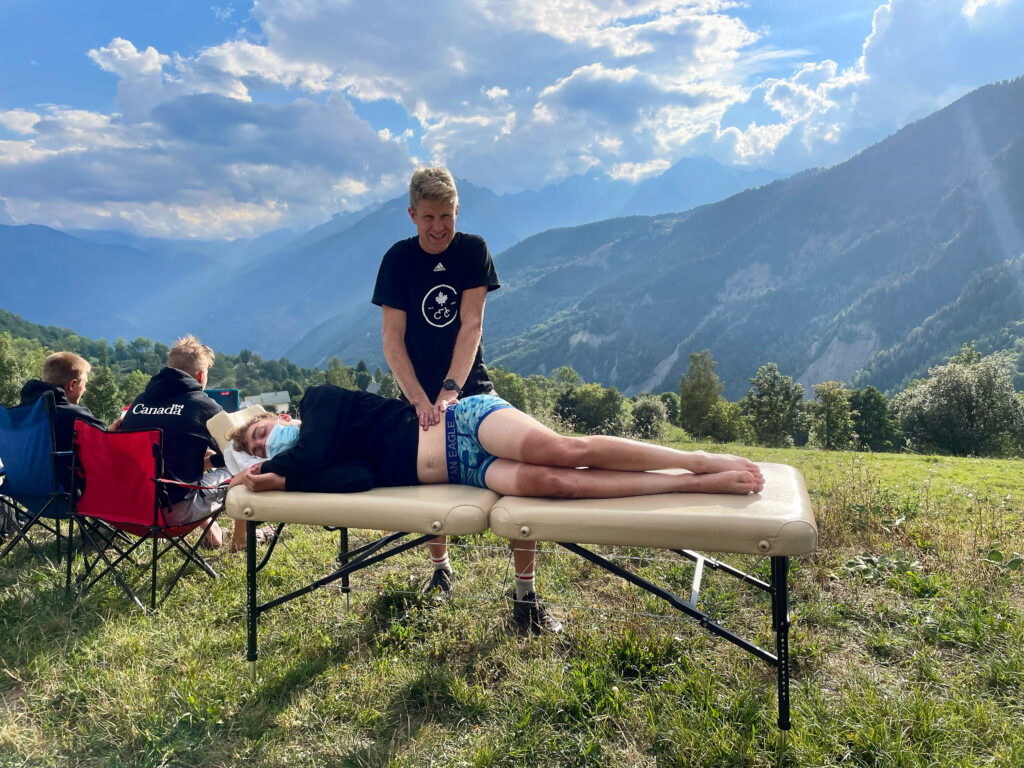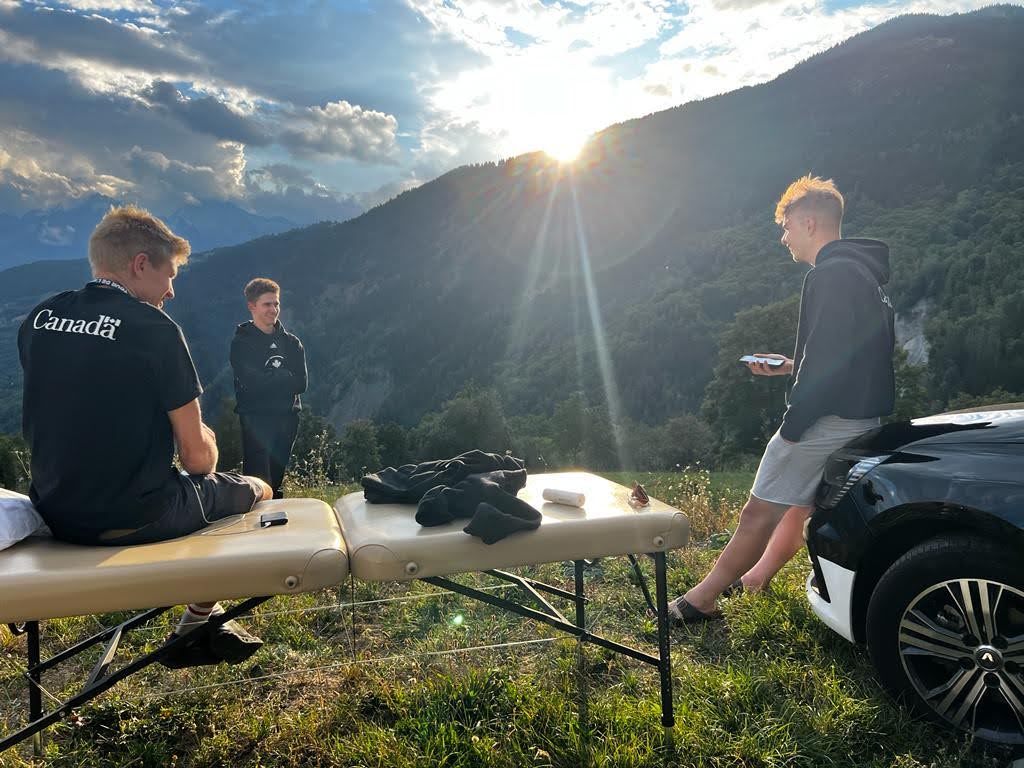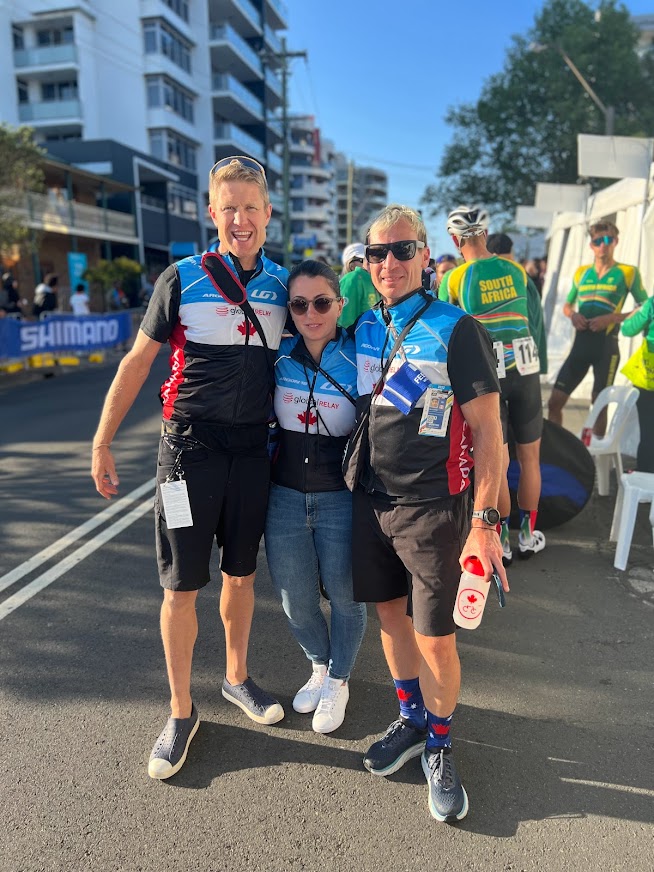
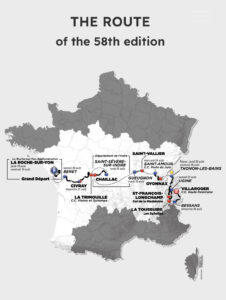 I received an invitation to be a team therapist with Cycling Canada for the Tour de l’Avenir (“Tour of the Future” and the U23 Tour de France) and I felt I couldn’t pass on an opportunity like this. It was a challenging and rewarding experience. I had not worked with a road cycling team professionally, though, and it was a big learning experience.
I received an invitation to be a team therapist with Cycling Canada for the Tour de l’Avenir (“Tour of the Future” and the U23 Tour de France) and I felt I couldn’t pass on an opportunity like this. It was a challenging and rewarding experience. I had not worked with a road cycling team professionally, though, and it was a big learning experience.
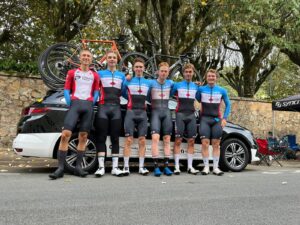
The race went through 10 stages across the South of France, first from close to the Atlantic coast through the south and finished into the Alps next to the border with Switzerland and Italy.
It was 10 days of racing with a rest day (near Geneva) to take a well needed rest to recover for the final three mountain stages. The first few days, this race had plenty of crashes and trauma. Lots of pressure on athletes to perform, especially if they are sprinters and want to have results before the alpine mountain stages of the second week.
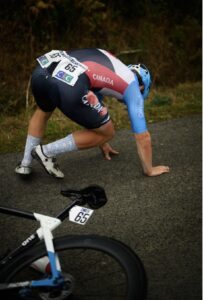 Unfortunately, the top ranked Canadian crashed out on the second day, Riley Pickrell. Due to a bottleneck in the road there was a big pile-up and he hit the tarmac at 50km/h, shredding his body and chances in the race. Treatment for these types of injury is mostly managing road rash and the oozing wounds so they can ride the next day (and to prevent infections). Riley sustained a bad whiplash and neck pain so could not continue with the effort needed to be competitive in the race. On a funny side note, we were worried about a possible concussion but in the car after the crash, he was reading complex physics PhD Thesis papers, so his mind didn’t seem to be too affected. He is fully recovered and racing again in Europe as I write this.
Unfortunately, the top ranked Canadian crashed out on the second day, Riley Pickrell. Due to a bottleneck in the road there was a big pile-up and he hit the tarmac at 50km/h, shredding his body and chances in the race. Treatment for these types of injury is mostly managing road rash and the oozing wounds so they can ride the next day (and to prevent infections). Riley sustained a bad whiplash and neck pain so could not continue with the effort needed to be competitive in the race. On a funny side note, we were worried about a possible concussion but in the car after the crash, he was reading complex physics PhD Thesis papers, so his mind didn’t seem to be too affected. He is fully recovered and racing again in Europe as I write this.
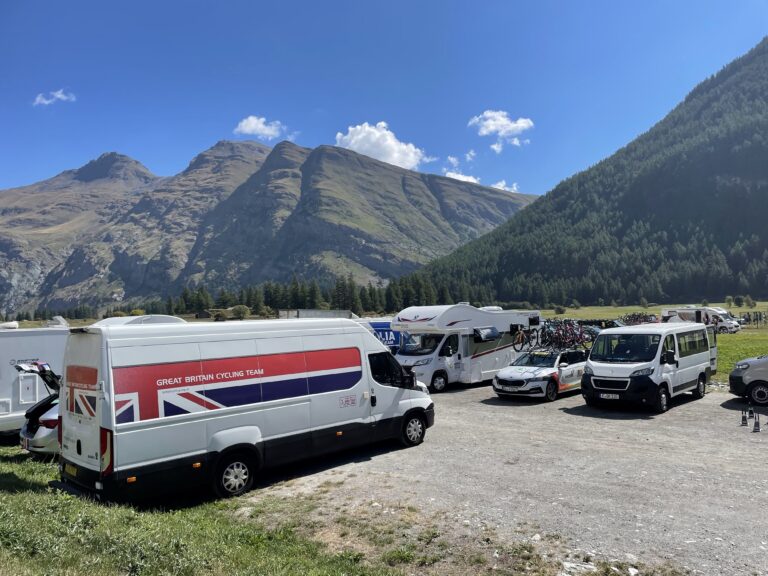
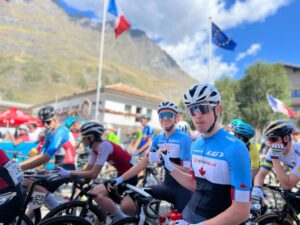 The remaining stages went across the rest of France and ended up in the most beautiful region in all of France: La Savoie Rolling hills, tiny towns with their own flavour of cheese to pair with baguette and wine.
The remaining stages went across the rest of France and ended up in the most beautiful region in all of France: La Savoie Rolling hills, tiny towns with their own flavour of cheese to pair with baguette and wine.
The last few days of the race was basically “damage control” from my perspective. The fatigue level was extreme as each day was 4-5hours of racing bikes over mountains in excess of 3000m of climbing (10000ft). Flushing out muscles each night was the priority and making sure there were no issues with long term injuries. But the last few days, there were only 60 riders left (after 180starting!!). It was about not letting the fatigue wear the athletes down so they could finish each day before the time cut dropped them from the race.
My favourite experiences during the races were seeing the action, driving across France alongside the race, getting in the right location for feed zone drops for water bottle and food hand-ups. Getting through some of rural roads in the south of France proved to be a challenging experience. Not all the maps would be accurate and I found myself using multiple sources and race information to plan out the route. Every small town in France has a unique boulangerie and I would get a delicious bagette with local cheese and some amazing dessert treat. 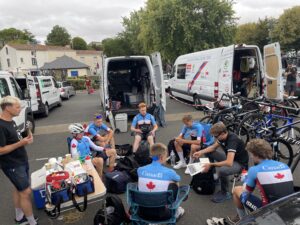
Treating athletes every night after the stage was a joy because I heard their side of the daily events. A few of the locations, especially the last location was in a Chalet was on the side of a mountain, way up a valley, almost near the peak of Col de Magdalene, a famous climb in the Tour de France.
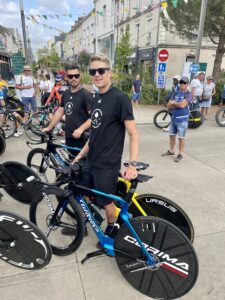
I hope I get to do it again as I found it very inspiring to help these high-performance athletes on the cusp if making it as a top level professional on the world stage. I was mainly there for acute race-day injuries but I found a few athletes had some long standing chronic niggles that were preventing from them achieving their full potential (in my opinion). Teaching them self-treatment protocols and rehab exercises is one of my ambitions in helping people.
